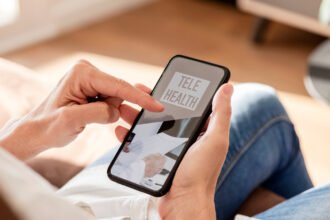Untreated mental illness, such as depression, cost employers in America about $44 billion annually in lost workplace productivity. This is according to the University of Michigan Depression Center. Moreover, data published by the Bradley University Online Master of Arts in Counselling Program shows 43.6 million Americans 18 years and older experienced mental health problems in 2014 alone. These statistics show that mental health issues are a big problem that affects the most productive Americans during their prime, which is worrying. Fortunately, employers across America are turning to electronic mental health services to remedy this situation.
An Overview of Telemental Health Apps
Telemental health (TMH) apps are basically mobile applications that enable users to access the health services they need without necessarily having to visit a doctor’s office. A scientific paper published in the journal JMIR Mental Health states that such apps are designed to foster positive mental health via emotional self-monitoring and promotion of positive coping strategies. To use such apps, people with mental health issues download them onto their mobile devices and simply follow the in-app instructions. Some apps such as Koko take the crowdsourcing approach to help people facing mental health issues, as well as patients suffering from stress and depression issues. Others TMH apps come with self-report questionnaires containing open-ended and closed-ended questions that users must answer to determine their mental health status. After analyzing the answers submitted, the apps recommend appropriate coping strategies or link users to mental health specialists.
One of the businesses that are taking employee mental health seriously is California-based Addepar, which has purchased access to Ginger.io, thereby enabling employees to connect to health coaches via the app. The Ginger.io app tracks user behavior and even alerts health workers when users remain indoors or fail to text for extended periods, which may be signs of worsening depression, stress or anxiety.
Sprint Corp. is another organization that uses an app to resolve mental health issues at the workplace. Similar to Ginger.io, the Castlight Health Inc. app monitors user behavior and directs at-risk staff to appropriate health experts.
Privacy Breaches
Although telemental health apps are beneficial, they also carry the risk of privacy breaches in the event they are hacked by cyber-criminals. In fact, a new report by Epstein Becker Green found that telemental healthcare faces significant privacy, security, emergency care, reimbursement, treatment of minors, and follow-up care challenges. To prevent data breaches, users of THM apps should take measures such a use strong passwords that preferably contain alphanumeric characters, keep their passwords secret and secure and ensure their personal details do not fall into the wrong hands, monitor their credit reports regularly, back up personal information regularly and avoid situations that may lead to identity theft. What’s more, users should perform security software updates regularly and scan any devices connected to their PCs or mobile devices.
The Future of Telehealth Technologies
The buzz surrounding virtual reality technology will play a big role in improving the efficacy of telemental health apps. A good example is ComPsych’s virtual reality technology that simulates treatment session in a therapist’s office. Another example is a virtual therapy app called Talkspace that is used by staff at Oregon-based animation studio Laika LLC. Talkspace enables users to communicate privately with therapists via text, video chat, and audio.
A telemental health app monitors a patient’s behavior and provides the patient with advice or strategies to cope with his/her condition. More importantly, the app links the patient with the relevant mental health practitioners. On the business front, American employers can save up to $6 billion annually by leveraging telemedicine services.






